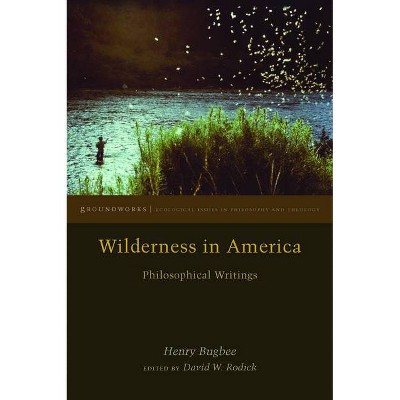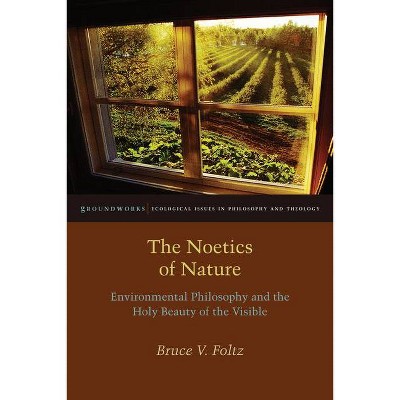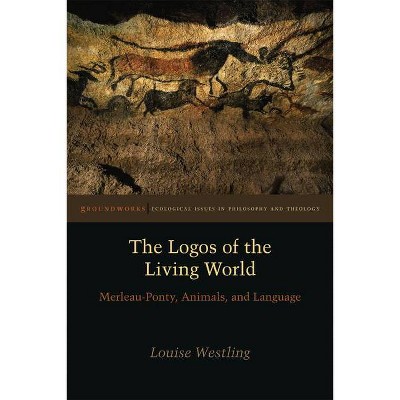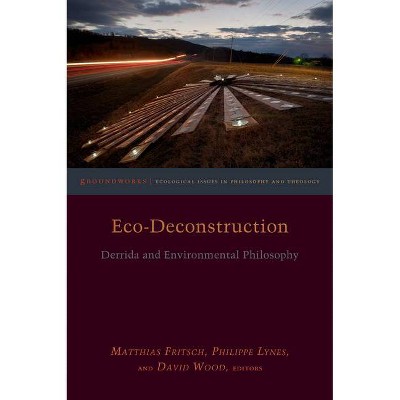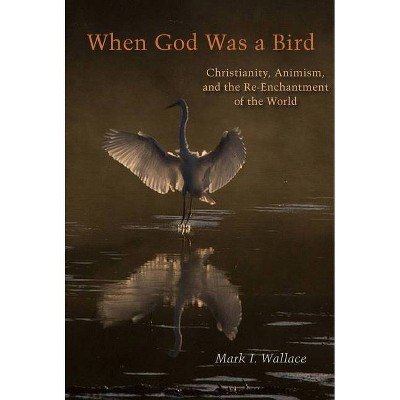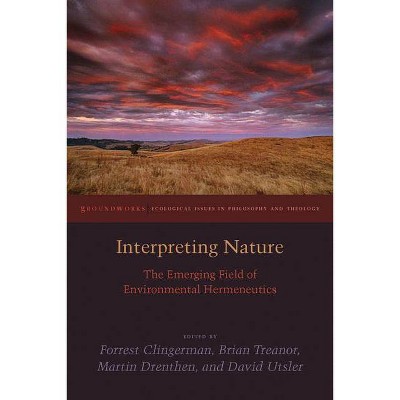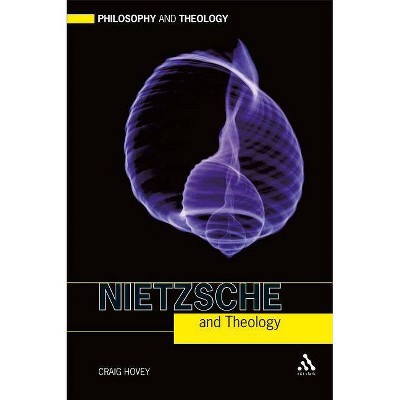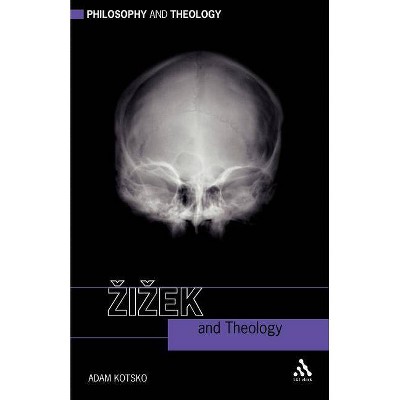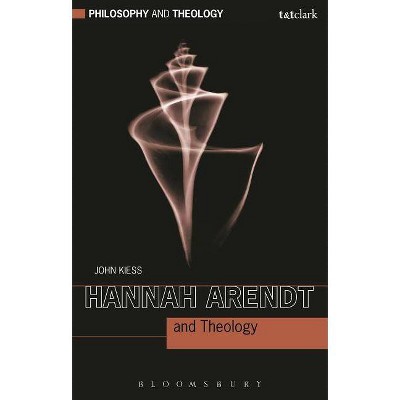Inner Animalities - (Groundworks: Ecological Issues in Philosophy and Theology) by Eric Daryl Meyer (Paperback)
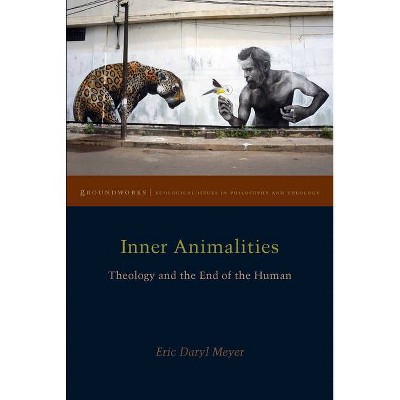
Similar Products
Products of same category from the store
AllProduct info
<p/><br></br><p><b> Book Synopsis </b></p></br></br><p>Most theology proceeds under the assumption that divine grace works on human beings at the points of our supposed uniqueness among earth's creatures--our freedom, our self-awareness, our language, or our rationality. <i>Inner Animalities</i> turns this assumption on its head. Arguing that much theological anthropology contains a deeply anti-ecological impulse, the book draws creatively on historical and scriptural texts to imagine an account of human life centered in our creaturely commonality. <p/>The tendency to deny our own human animality leaves our self-understanding riven with contradictions, disavowals, and repressions. How are human relationships transformed when God draws us into communion through our instincts, our desires, and our bodily needs? Meyer argues that humanity's exceptional status is not the result of divine endorsement, but a delusion of human sin. Where the work of God knits human beings back into creaturely connections, ecological degradation is no longer just a matter of bodily life and death, but a matter of ultimate significance. <p/>Bringing a theological perspective to the growing field of Critical Animal Studies, <i>Inner Animalities</i> puts Gregory of Nyssa and Karl Rahner in conversation with Jacques Derrida, Giorgio Agamben, Kelly Oliver, and Cary Wolfe. What results is not only a counterintuitive account of human life in relation with nonhuman neighbors, but also a new angle into ecological theology.</p><p/><br></br><p><b> From the Back Cover </b></p></br></br><p>"What does it mean to be a creature in the proximity of the realm of God? How might we think of Imago Dei, incarnation, sin, and redemption, relieved of the blinders of human exceptionalism? Eric Daryl Meyer makes an elegant case that the idea of human uniqueness is a sign of human fallenness. He sees and seizes Christian theology's potential to widen how human beings understand ourselves. This book offers that rare gift: a theological way out of the protracted, defensive, and limited need to keep humanity from its God-given animality. In its important theological interventions and conceptualizations, in its vivid and visionary discussions, this book gives me hope."--Carol J. Adams, author of <i>The Sexual Politics of Meat</i> <p/>"Meyer adds considerable nuance to the more widespread observation that Christian anthropology depends on a notion of animality in its understanding of the human. More clearly than any thinker I've read, Meyer shows that the moment Christian theologians disavow animals often betrays a trace of another way of thinking about animals, humans, and God. He has brought out internal inconsistencies in Christian theological articulations of the human/animal binary in a remarkably fruitful way."--Aaron Gross, University of San Diego <p/>Most theology proceeds under the assumption that divine grace works on human beings at the points of our supposed uniqueness among earth's creatures--our freedom, our self-awareness, our language, or our rationality. <i>Inner Animalities</i> turns this assumption on its head. Arguing that much theological anthropology contains a deeply anti-ecological impulse, the book draws creatively on historical and scriptural texts to imagine an account of human life centered in our creaturely commonality. <p/>The tendency to deny our own human animality leaves our self-understanding riven with contradictions, disavowals, and repressions. Meyer argues that humanity's exceptional status is not the result of divine endorsement, but a delusion of human sin. Bringing a theological perspective to the growing field of Critical Animal Studies, <i>Inner Animalities</i> puts patristic sources and modern theology in conversation with contemporary philosophy. What results is not only a counterintuitive account of human life in relation with nonhuman neighbors, but also a new angle into ecological theology. <p/><b>Eric Daryl Meyer</b> is Assistant Professor of Theology at Carroll College.</p><p/><br></br><p><b> Review Quotes </b></p></br></br><br>...provides a number of fresh thoughts and new perspectives and will be a lasting contribution to the growing field of Human-Animal Studies.-- "Philosophy, Theology and the Sciences"<br><br>Arguing that much theological anthropology contains a deeply anti-ecological impulse, this book draws creatively on historical and scriptural texts to imagine an account of human life centered in our creaturely commonality.-- "Interpretation: A Journal of Bible and Theology"<br><br>Meyer's work represents a key challenge to, and constructive proposal for, Christian theology each of which merit very wide consideration.-- "Modern Theology"<br><br>Meyer adds considerable nuance to the more widespread observation that Christian anthropology depends on a notion of animality in its understanding of the human. More clearly than any thinker I've read, Meyer shows that the moment Christian theologians disavow animals often betrays a trace of another way of thinking about animals, humans, and God. He has brought out internal inconsistencies in Christian theological articulations of the human/animal binary in a remarkably fruitful way.<b>---Aaron Gross, University of San Diego, <i></i></b><br><br>What does it mean to be a creature in the proximity of the realm of God? How might we think of Imago Dei, incarnation, sin, and redemption, relieved of the blinders of human exceptionalism? Eric Daryl Meyer makes an elegant case that the idea of human uniqueness is a sign of human fallenness. He sees and seizes Christian theology's potential to widen how human beings understand ourselves. This book offers that rare gift: a theological way out of the protracted, defensive, and limited need to keep humanity from its God-given animality. In its important theological interventions and conceptualizations, in its vivid and visionary discussions, this book gives me hope.<b>---Carol J. Adams, <i>The Sexual Politics of Meat</i></b><br><p/><br></br><p><b> About the Author </b></p></br></br>Eric Daryl Meyer is Assistant Professor of Theology at Carroll College.
Price History
Price Archive shows prices from various stores, lets you see history and find the cheapest. There is no actual sale on the website. For all support, inquiry and suggestion messages communication@pricearchive.us

